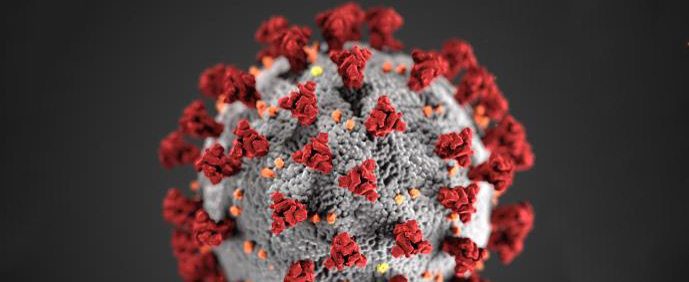Fast Fact
Your brain is 73% water. It takes only 2% dehydration to affect your attention, memory and other cognitive skills!
Earth-friendly 2016 Diet Resolutions
 Too many of us have become Eco-Zombies… careless about the relationship between the health of the planet and the health of our own bodies and minds. From farm to fork, the way food is grown, processed, and distributed affects not only its quality and variety, but also impacts our health and the sustainability of Mother Earth. That’s why a lot of people who are concerned about both the size of their waist and recent extremes in climate change are making Earth-friendly dietary choices.
Too many of us have become Eco-Zombies… careless about the relationship between the health of the planet and the health of our own bodies and minds. From farm to fork, the way food is grown, processed, and distributed affects not only its quality and variety, but also impacts our health and the sustainability of Mother Earth. That’s why a lot of people who are concerned about both the size of their waist and recent extremes in climate change are making Earth-friendly dietary choices.
A useful starting point for understanding the relationship between the environment and your health is “planetary boundaries,” or tipping points in our planet’s natural air, land, and water systems. Recently, a team of 28 internationally renowned scientists identified these boundaries and related changes in natural systems, such as air quality, biodiversity, and land use. Breaches to these boundaries and the altered environmental trajectories could result in rapid, irreversible changes that threaten the conditions under which humanity can thrive on Earth. According to the scientists, 3 of the 9 planetary boundaries have already been crossed: climate change, biodiversity, and the global nitrogen cycle. The direct and indirect effects are seen in loss of biodiversity; soil, air and water pollution; polar ice melting; rising sea levels; ocean acidification; species endangerment and alterations in habitats; and inadequate development of water and land resources to meet food and energy needs. These changes have inexorable effects on human health, including increases in food and waterborne disease; disease carried by wildlife (e.g., Lyme, West Nile, Ebola), malnutrition, and rising rates of cancer, heart disease, respiratory illness, and diabetes.
Our reliance on factory farms – a.k.a Concentrated Animal Feeding Operations or CAFOs-is a big contributor to environmental rifts and the degradation of health. Most meat, poultry, eggs and dairy sold in the U.S. come from CAFOs, a major driver of deforestation, habitat destruction, and climate change. To prevent disease and promote faster growth, these animals are given hormones and antibiotics. Overuse of antibiotics contributes to antibiotic resistance, a serious public health problem. Animal feed consists largely of subsidized Genetically Modified (GMO) grains grown with toxic pesticides and fertilizer, which end up in the water supply and on our produce.
“Grass-fed” beef may be more humane for animals but even the most humane farming practices wreak havoc on ecosystems. We have to feed billions of people, too many of whom consume too much of any kind of meat.
Fish aren’t off the hook, either. Overfishing has depleted many marine species and degraded marine ecosystems. Fish farms face similar problems to CFAOs. When it comes to reducing the negative impact food production on the planet, reducing seafood consumption is part of the equation.
Earth-friendly Diet Resolutions
Every day, you have three chances to choose a healthy, Earth-friendly diet consisting of more fruits, veggies, and legumes and no (or less and more carefully chosen) meat, dairy, eggs, and fish. In turn, you’ll create a healthier future for Mother Earth.
Grow Your Food. Growing food helps save money, reduce the environmental cost of factory farming, and gives the whole family an “agri-education.” Use organic soil, compost, and practice conservation-friendly watering to help your garden grow.
Eat Organic, Seasonally & Locally. Choose organic and in-season foods from local farms (Community Supported Agriculture-CSA) to support your local economy.
Go Meatless on Mondays. Just 1 day a week, try replacing meat-based recipes with savory vegetarian options.
Fish with Care. Like beef, farm raised fish also contain chemicals that affect our health and the environment. Choose locally caught, sustainably raised fish like tilapia, catfish or carp or “lower food chain” seafood including squid, clams or mussels.
Start a Farm-to-School Program. Talk with local public schools about partnering with CSA farms and serving vegetarian options to students.
Support GMO Labeling. The only way to know if a food has been genetically manipulated is for labels to indicate products are GMO-free. When it comes to your inbox, sign petitions for GMO labeling laws.
[hr]
Boost for the Brain? Bacopa monnieri

Bacopa monniera (Brahmi, water hyssop) is an Ayurvedic botanicalmedicine used to enhance learning, memory and attention span. It has been used for centuries in India as a treatment for epilepsy, insomnia, anxiety, and disorders of memory and attention. Brahmi has not been as widely researched in modern scientific studies as have other Ayurvedic treatments. Through case studies and long-standing Ayurvedic and naturopathic approaches, it’s worth noting that scientists are now interested in Brahmi as a therapeutic intervention for ADHD, Alzheimer’s Disease (AD) and age-related memory loss.
How Does It Work?
The way medications work, especially those that affect brain function, aren’t always fully understood by doctors. Brahmi is believed to have an effect on certain brain substances called neurotransmitters, which are involved in thinking, learning, mood, and memory. Some research suggests that Brahmi may have a protective effect on the cells, keeping them from either failing to function properly or helping them resist damage that can occur from infection, toxins, and the aging process. A few clinical studies with healthy adult participants showed an improvement in their ability to retain new information over a period of time. Improvements in memory have also been seen in children from a rural Indian village. Further studies, including long-term studies, are necessary to fully understand these effects in adults, young people, and for various health concerns.
Precautions
Be careful not to confuse Brahmi (Bacopa monnieri) with other natural medicines that go by the same name. It may interact with other medications. Consult Dr. Fenske or another wellness practitioner to determine if Brahmi is appropriate for you, especially if you are pregnant, nursing or recovering from surgery or illness.
[hr]
Meditate: It Does a Brain Good!

Amazing changes happen to mind and body when you meditate. During meditation, there is a physiological shift called ‘the relaxation response’ (RR). This response is exactly opposite the stress response that so many of us have a hard time avoiding in our daily lives. You may think you have lots of ways to relax-sleeping, watching TV, reading-but these activities do not produce the same physiological changes that happen when you meditate.
In addition to changes in brain waves, heart rate and respiration rate, meditation results in disengaging from the thinking process. You become a detached observer of the clutter that fills your mind and learn to let go of it all, one breath, one moment at time. Your troubles won’t magically disappear, but your perspective about them will shift, even if you meditate just a few days a week.
How does Meditation work?
When you are stressed, your body releases hormones that can have a negative effect on your health. Research shows having stress hormones (e.g., cortisol) circulating through your body for prolonged periods is associated with certain diseases. Meditation brings about the RR and reduces the levels of stress hormones. Now, your immune system is better able protect you from illness, recover quickly, and restore optimal wellbeing.
What can Meditation Do For You? Alot!
- Reduces tension-related pain
- Strengthens the immune system
- Improves quality of sleep
- Strengthens neural pathways
- Improves emotional stability
- Enhances creativity
- Boosts brain chemicals associated with mood, memory and learning
Start a Meditation Practice
Begin with 5 minutes a day and progress to 20 minutes at least 3-4 times a week. Use sounds of nature, music, a candle, or a guided imagery to help you get started. Meditation is often done seated or lying down. Use cushions or a chair to support your posture. Eyes closed or open is up to you.
You’ll soon discover that meditation is a state of mind involving awareness and acceptance, that you can do in the midst of any activity.
[hr]
Guiding Principles




